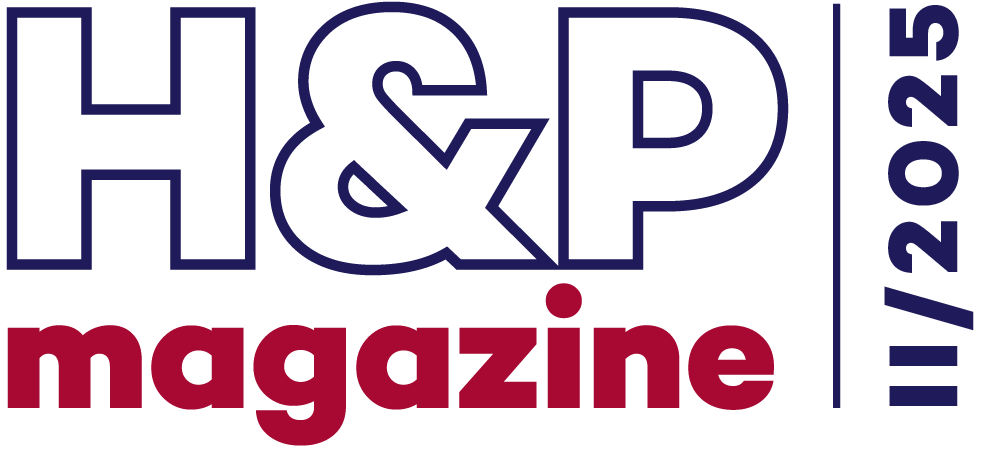You invest in development, marketing and people and you’re ahead of the competition. Do you protect what you have created though? Without a patent, trademark or well-drafted contract, you risk someone else reaping the fruits of your labour. How to protect intellectual property in business?
IP protection is not just a formality. It is a strategic advantage and a defence against unwanted losses.
It is not only in business where speed and prudence often win out. But just as important as being first is protecting what you have created, developed or researched. Do you feel that securing legal protection for intellectual property is just an unnecessarily lengthy and costly step that delays the rapid launch of a product? Would you rather invest in marketing and finding investors than in IP protection? Intellectual property is not just a formality. It is a strategic advantage and a defence against unnecessary losses, as many cases show.
For example, Czech inventor František Hrabal and his company Coda Development had to face a technological giant – tyre manufacturer Goodyear. František Hrabal claimed that his self-inflated tyre technology had been stolen. First, thanks to the contractual set-up that bound Goodyear to confidentiality, he succeeded in the US court; the jury awarded his company compensation of up to CZK 1.6 billion. In the subsequent proceedings, the court has not yet definitively accepted the jury’s decision, although the proceedings continue, pending a final judgment. However, the case already clearly shows that the protection of an idea can have very significant financial implications.
Another example is the Czech Institute of Organic Chemistry and Biochemistry of the Czech Academy of Sciences, which thanks to the correct licensing policy for the substances of Professor Antonín Holý has received CZK billions from the licensing of antivirals sold by Gilead Sciences. Early international patent protection has brought long-term income for research in the Czech Republic.
There are many other similar cases in the Czech Republic and Slovakia. How not to underestimate the situation and how to choose the right type of protection for your idea? Does it need to be protected at home and abroad, and what should the subject of the actual protection be?
Being fast doesn’t mean being reckless
In today’s fast-paced and competitive economy, flexibility and the ability to be first to market play an important role. But that doesn’t mean you should act recklessly. If you disclose a new technology too early, for example on your website, at a trade fair or in a presentation to investors, you may irretrievably lose the possibility of patent protection. In most countries, in order to be patentable, an invention must be new, i.e. not yet published anywhere. The fact that you published it first just does not suffice. That in itself does not protect you. You must also be the first one to register your invention with the patent office.
If you create a new material, chemical compound, technological process or device in your company, it is necessary to file the patent or utility model application and only then go public with the idea. The application can give you the legal monopoly for your invention for up to 20 years, virtually worldwide. Without filing a patent application, you will only reveal the results of your expensive research to your competitors without any possibility of consideration.
However, you must take into account that in exchange for an exclusive monopoly, your invention will be publicly described in patent databases and thus accessible to everyone. The principle of a patent is therefore simple: monopoly in exchange for sharing technology.
Alternative: protection of trade secret
An effective alternative to a patent is the protection of know-how as a trade secret. It does not require registration and the protection is effective immediately. If the information is non-public, it has economic value, and as a business you take reasonable steps to keep it confidential. This can be especially crucial for innovations that you don’t want or can’t disclose in the form of a patent.
The famous US dispute between Google (through Waymo, its subsidiary) and Uber has shown that trade secrets can also be effectively enforced. Waymo sued Uber for misuse of confidential information related to the development of autonomous vehicles after a former Waymo employee defected to Uber and took 14,000 technical documents with him. The dispute ended in an out-of-court settlement worth over CZK 5 billion (USD 245 million).
Even in the Czech Republic and Slovakia, trade secrets can be legally protected nowadays since EU directives and Czech and Slovak law expressly allow this. However, it is necessary to have an internal setup for handling and protecting trade secrets, otherwise the court will not grant it to you. We therefore recommend setting up these processes with an experienced advisor to ensure they are duly enforceable. It’s not just about the legal set-up, but also the technical set-up, the control of access to this information and the way it is handled in your company.
Join us for an overview of how intellectual property rights can be protected in the Czech Republic and Slovakia:
Trademarks
They protect your company’s brand as well as individual products. They can protect both the verbal name, the logo, but also the shape of the product (Toblerone chocolate), its colour (purple Milka) or the jingle (McDonald's “I’m loving it”). The protection can also apply to an audiovisual animation (e.g. the Netflix jingle).
Industrial design
Besides protecting the name of your company or product, you can also protect your logo or design, i.e. what a particular product looks like. This is protected by industrial design. It does not only have to apply to fashion products, but also individual car parts, packaging and boxes of your products, or the appearance of your computer user interface or logo. Its application is really wide.
Patent and utility model
Do you want to protect not only the product’s name and appearance, but also its unique innovative features? You may do so through patents or utility models. These provide unique protection that guarantees a commercial monopoly. No competitor will be allowed to use your patented technology even internally.
Copyright
Copyright can protect any lyrics, graphics, jingle, music, and possibly even the look of the product. The advantage of copyright is that no application or registration is required for its protection. Copyright also applies to any software. Do you programme anything or do you have new software implemented? Remember to address copyright issues between the contractor and the client.
Domain name
Don't forget to register a domain name for your company, project or product early to avoid cybersquatting, where speculators “buy up” domains that you might be interested in.
Right to the database
In practice, what tends to be forgotten is the sui generis right of the maker of the database. A database means any data that is structured in some way. Therefore, not everything that is available online is for free use. Web scraping or other copying of online data and its further processing may be a violation of this sui generis right. The right arises informally once the database is created without the need for any registration.
Trade secret
A trade secret is anything that gives you a competitive advantage (market research, client database, special production method) that is secret and valuable or standardly unavailable. It must be concrete information and facts, not abstract ideas or ideas. There have already been court decisions made in the Czech Republic awarding millions of dollars in damages for breach of trade secrets.
What to keep in mind
In today’s online world, it is no problem to lodge an application on the other side of the globe. You need to take this into account and make sure that you do not infringe anyone’s rights if you come to market with a new product or if you take inspiration from your competitors.
You may take preventive steps through a freedom-to-operate analysis that will check whether your technology interferes with the rights of competitors. Trademarks are checked through trademark searches. We routinely prepare such analyses for clients before embarking on costly patent or trademark registrations.
Please also keep in mind that if you want to use any idea, you need to have a contractual relationship with the creator/author. It’s too late to secure such rights if an employee or executive leaves to join a competitor, or if your partner or supplier surprises you by competing with you using your idea. This also applies to the company name or logo.
Some intellectual property rights only provide protection upon their registration. So even if you secure the rights to an invention or logo from its creator, you still need to file an application for registration. This applies to trademarks, industrial designs, patents/utility models and domain names.
On the other hand, there is no need to overdo it with registration. File an industrial property registration application only for the territory where you realistically aim to carry out your activities or where you expect to licence or otherwise commercialise your intellectual property. It is not worth it for other countries.
H&P PATENTS and IP Litigation Practice
One of HAVEL & PARTNERS’ key specialisations is intellectual property (IP) and technology law. Our dedicated team is the largest on the Czech-Slovak market – it comprises about 40 experts. We have a number of experienced IP lawyers, patent attorneys and attorneys specialising in IP litigation or technology transactions.
At HAVEL & PARTNERS, we have combined the technical expertise of patent attorneys in our H&P Patents practice with cutting-edge legal services. As a result, we provide comprehensive IP protection from technical to legal and tax issues.
Our patent and trademark attorneys have a technical background and are highly knowledgeable in the technical dimension of your industry. Our lawyers are responsible for all key areas, from comprehensive licensing agreements and tax implications to setting up group and transfer pricing structures to representing clients in court and defending against third-party claims.
We also use a range of advanced technologies to protect our clients’ rights against illegal imitations and counterfeits, including in cooperation with customs administration and other relevant authorities.








